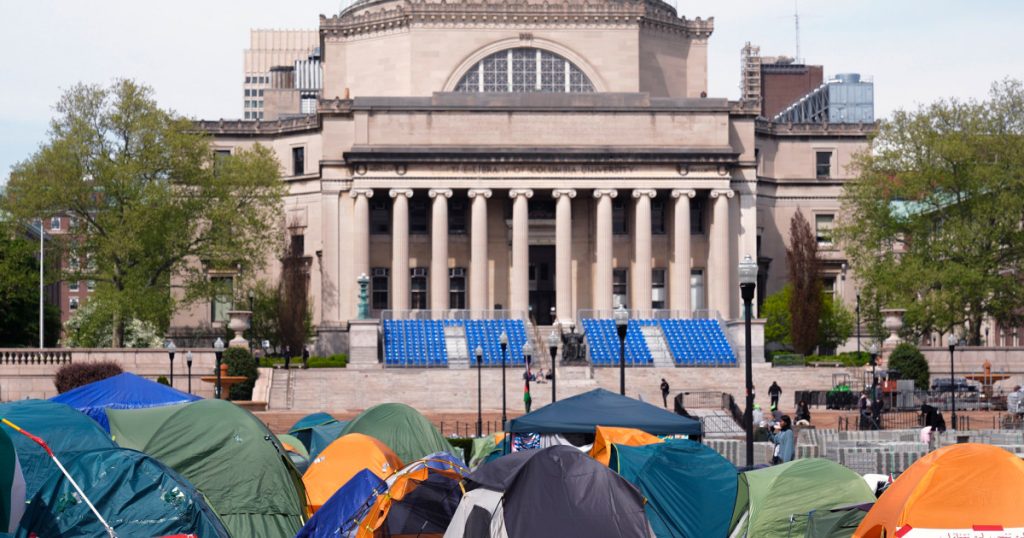Columbia University is facing the decision of rethinking its commencement plans following weeks of pro-Palestinian protests that resulted in the arrest of dozens of individuals who had barricaded themselves inside a school building on campus. While the university is considering canceling the main commencement ceremony due to security concerns, smaller events are still being planned. Student government representatives met with university leaders, who expressed uncertainty about whether a traditional commencement ceremony could be held on the main campus in Manhattan. Concerns have been raised about potential protests and the presence of President Minouche Shafik at the ceremony, causing distress among students.
With approximately 15,000 students set to graduate in outdoor ceremonies on May 15, concerns have been raised about the potential cancellation of commencement after significant expenses have been incurred by students staying on campus until that date. Columbia’s commencement is a longstanding tradition, dating back to 1758, with each school within the university typically holding its own individual graduation ceremonies. Some faculty and staff members are reportedly planning to attend an alternative graduation ceremony on May 16, inspired by a counter-commencement event held in 1968. The fate of Columbia’s official commencement ceremony remains uncertain as administrators weigh the risks of potential protests and security issues.
Protests erupted at Columbia’s campus on April 17 when students set up tents demanding a cease-fire in Gaza and calling for divestment from companies profiting from war. The protesters were initially removed by authorities but quickly returned, sparking similar encampments at colleges nationwide. After protesters occupied a school building and barricaded themselves inside, law enforcement was called in to remove them. Nearly 100 people were arrested, including individuals described by city officials as “professional outside agitators.” The arrests have led to a lack of confidence in President Shafik among some students and faculty at Columbia.
In response to the protests, Columbia sought assistance from the New York Police Department to clear the occupied building and restore order on campus. The university warned students of potential suspension or ineligibility to graduate if they did not comply with the orders to dissolve the encampments and cease disruptions on campus. The decision whether to proceed with a commencement ceremony amid safety concerns or to cancel it altogether reflects a dilemma faced by other colleges dealing with campus unrest and protests. The University of Southern California recently canceled its main commencement ceremony due to similar issues, indicating a broader trend of colleges grappling with how to navigate graduation events amid growing unrest and security challenges.
As Columbia University continues to deliberate on its commencement plans, the university community remains divided over the appropriate course of action following the recent protests and arrests on campus. With concerns about outside protesters, security risks, and potential disruptions, administrators are working to ensure that all ceremonies run smoothly and that graduating students are able to celebrate their achievements. The decision whether to proceed with commencement on the scheduled date or to alter plans in response to ongoing unrest represents a significant challenge for university leaders and the broader community as they navigate the complexities of balancing academic traditions with safety considerations in a rapidly evolving landscape of student activism and protest.


